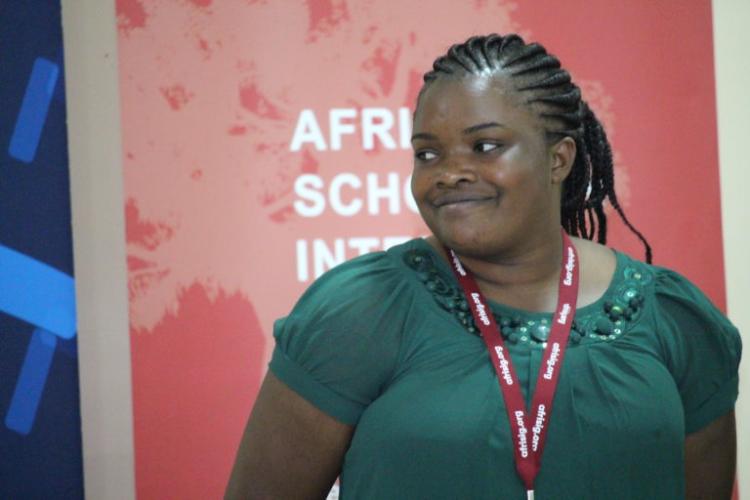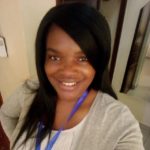
I have wanted to attend the African School on Internet Governance (AfriSIG) ever since I participated in the Internet Governance Forum (IGF) as an ISOCYouth@IGF fellow last year. It was through this formative experience that I first developed a passion for internet governance. Even with my limited background in the field, I decided to organise the Arusha Women School of Internet Governance (AruWSIG) and the Tanzania School of Internet Governance (TzSIG) with the hopes of sharing my newfound knowledge with my community.
When I received confirmation of my acceptance to AfriSIG, I was overwhelmed with excitement, realising that this would be an invaluable opportunity to improve and grow the interventions I currently coordinate. I was looking forward to seeing how sessions are facilitated, better understanding multistakeholder processes and learning about the roles that gender and access play in internet governance. Ultimately, my high expectations were exceeded thanks to the interactive, learner-focused and engaging way in which the school was conducted.
Collaborative governance
The school was preceded by a workshop on collaborative governance delivered by the Internet Society (ISOC). This workshop outlined the key foundations of governance and set the pace for the school. Through the use of different collaborative exercises and role plays, we explored the art of negotiation and multistakeholderism. For example, we conducted a negotiation exercise where each of us was assigned a role. In this particular exercise, I played a tech company, which meant I had to see things from the perspective of a business owner. Each participant researched their roles and assumed a position that fit their characters. We then argued, presented our respective positions and established our Best Alternative to a Negotiated Agreement (BATNA) in order to reach a consensus that was fair to all stakeholders.
AfriSIG
The first day began with an introduction to how the internet works. This is when I realised that internet governance sure has a lot of acronyms, but thankfully, we were given a list of them to refer to. During this session, we learned about internet architecture, core protocols and standards, and we had the chance to think about who governs the internet. We also talked about the history of the internet and important milestones in web development before discussing the World Summit on the Information Society (WSIS) agenda and current internet governance issues. Finally, we were introduced to key organisations addressing internet governance, which include the Internet Corporation for Assigned Names and Numbers (ICANN), ISOC and the United Nations IGF , among others. This helped me to understand the key role of ICANN in “names and numbers,” the domain name system (DNS) and policy development.
After covering the key concepts of internet governance, we then moved on to the topic of domain management, discussing top-level domains (TLDs), including generic top-level domains (gTLDs) and country code top-level domains (ccTLDs). We discovered that you can only lease TLDs, you cannot buy them. During an engaging discussion on ccTLDs in Africa, we explored why their uptake and use remain a challenge in many African countries because of barriers such as high costs and a lack of awareness.
Next, we had a session on cybersecurity where I learned that the three basics of security are confidentiality, integrity and availability. We also considered existing policies that deal with cybersecurity. One of the key concerns in this discussion was that cybersecurity policies in Africa often sound more like “cyber-insecurity and not cyber-security” and hence result in “unclear and vague policies.”
I particularly liked the definition of privacy as “the right to be left alone”, which we learned during the data protection and privacy session. This workshop also introduced us to different concepts and terms such as “data controllers” and “data processors ”, and helped to prepare us for our practicum exercise by highlighting the idea of data consent and the importance of giving people more control over their data. Some interesting quotes from this session included “innovate or perish” and “we use the law to punish our enemies and interpret it for our friends.”
Another topic we discussed during the training was human rights on the internet. As we learned, human rights, such as freedom of speech, expression and opinion, apply online as much as they do offline. The right to access information is also a human right which relates to internet development. In our debates, I discovered that the line between “national security” and “cybersecurity” is often blurry, which leads to the presence of ambiguous and unclear policies which often infringe upon human rights. An interesting quote I heard during this session was, “We want transparency but we don’t want nudity.”
Another issue we touched on was access, bringing to light the fact that the majority of communities in Africa remain unconnected. Even if they have coverage, they often lack connectivity. The community network approach, however, could play a significant role in connecting the next billion. We built on the example of Zenzeleni Networks in South Africa and tried to address the big questions of sustainability and effective business models for community networks. We also learned about , a research project on newly connected communities, which further explores the challenges that communities face even after gaining access, such as a lack of skills, devices and supporting infrastructure.
Finally, we had the panel on “Gender and Internet Governance”, which I had been particularly looking forward to. This presentation delved into different power dynamics and the gender spectrum. Since the internet enables participation and holds great influence, it’s important that women play an active role in internet governance and policy decision making. Though the internet has provided women with a platform for empowerment, it is still not a safe space due to the prevalence of online gender-based violence. The Feminist Principles of the Internet are of particular interest in combating this challenge and definitely something that women working online can continue to build on. The principles include access to the internet, access to information, movement building and addressing online violence, among others. I plan on including this document as part of the AruWSIG reading list.
On the last day, we delved into multistakeholder approaches to internet governance by looking at case studies from different national internet governance forums. This session proved helpful to me as a coordinator of the TzIGF seeking to improve stakeholder engagement and strengthen the internet ecosystem in Tanzania. We also learned about the key principles and various resources needed to organise a multistakeholder internet governance forum. Another topic we discussed was how to engage grassroots communities in internet governance through offering education on policy and digital citizenship.
I would like to express my appreciation for the efforts of the organising team, faculty and fellows as well as the sponsors and conveners of AfriSIG. Through the knowledge I have gained from this experience, I hope to create awareness, empower the next generation of leaders and increase the capacity of stakeholders in Tanzania to participate in national, regional and global internet governance processes. Just as the internet governance world is full of acronyms, so too was AfriSIG full of great quotes. I would like to end my reflection with this one: the internet is “a global resource which should be managed in the public interest.”
 Rebecca Ryakitimbo is co-founder and representative for Digitalgrassroots in Tanzania, a youth-led initiative to grow digital citizenship and literacy. She founded KsGEN which works towards building informed, skilled and innovative communities through data and ICT Solutions to achieve SDG’s. Rebecca considers herself a STEAM and digital rights advocate, actively involved in internet governance forums/discussions at local, national and international levels, with a special emphasis on digital rights, gender inclusiveness and access. She is an active global shaper in the Arusha Hub under the World Economic Forum. She loves literature, film making, horse riding and is a girl scout.
Rebecca Ryakitimbo is co-founder and representative for Digitalgrassroots in Tanzania, a youth-led initiative to grow digital citizenship and literacy. She founded KsGEN which works towards building informed, skilled and innovative communities through data and ICT Solutions to achieve SDG’s. Rebecca considers herself a STEAM and digital rights advocate, actively involved in internet governance forums/discussions at local, national and international levels, with a special emphasis on digital rights, gender inclusiveness and access. She is an active global shaper in the Arusha Hub under the World Economic Forum. She loves literature, film making, horse riding and is a girl scout.
